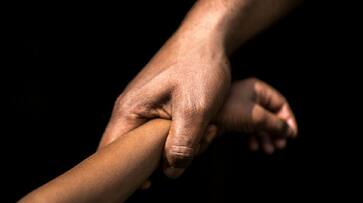Official statistics show a dramatic increase in the number of crimes against women and crimes have increased by more than 80% over ten years. Only one in five cases result in conviction.
New Delhi: The Central Bureau of Investigation (CBI), last year, caught the rape and murder suspect of Shimla teen, Gudiya, after matching his DNA with that found at the crime scene. Scientific tests helped five wrongly accused youth to walk free.
The Aarushi-Hemraj murder case on the other hand remains a mystery even today as there was lack of forensic evidence.
The upward trend in the reportage of rape, sexual violence and murders in India has led to a growing demand to upgrade police forensic infrastructure in the country. But where does India stand when it comes to collecting and maintaining DNA samples?
According to recent data, the number of DNA profiles developed from crime scene evidence in India has doubled over a year from 10,000 cases tested in 2017 to nearly 20,000 in 2018. Despite an uptick in the number of profiles being tested, the volume remains low considering that almost 40,000 rape cases are registered every year.
Official statistics show a dramatic increase in the number of crimes against women and the crimes have increased by more than 80% over the last ten years, with only one in five cases resulting in conviction.
“Clearly awareness about the power of DNA technology has increased in the past few years. It has contributed to more reporting, and we have seen DNA testing numbers goes up. However, India is a country of a billion people and even 20,000 DNA profiles in a year is a drop in the ocean. I see an immediate need for scaling that up by ten times to 200,000. It’s evident that a lot more needs to be done by all stakeholders,” said Tim Schellberg, Founder & President, Gordon Thomas Honeywell—GA.
Field experts claim that forensic DNA has emerged as the most reliable crime-fighting technology around the world. Many countries are effectively using forensic labs and protocols to collect, test and compare DNA found at crime scenes with that of suspects and have obtained promising results. Where the law machinery world over is increasingly relying on DNA forensics to solve crime, the pace in India has been slow. Lack of scientific methods in investigations and the absence of a proper policy framework in the country continue to hamper justice.
Internationally, DNA forensic evidence is used as a standard operating procedure in cases of heinous crimes like rape and murder. Countries with less than a tenth of India’s population like the United Kingdom and Thailand complete DNA testing on over 60,000 and 10,000 crime scenes in a year respectively.
In India where more than 100 rapes are reported daily, only one in four accused are convicted. Experts have cautioned the authorities and have said that DNA evidence is being used in only a fraction of the cases and have called for DNA collection and testing to be made mandatory in all violent crimes. “Collecting DNA evidence should come into the DNA of law enforcement agencies. There is a need to make DNA testing & collection mandatory and an integral part of the investigative and legal culture in the country. In parallel, attention must be paid to building forensic infrastructure throughout the country in collaboration with the private sector,” said Supreme Court Advocate Vivek Sood.
DNA evidence not only helps in the conviction of a criminal but also ensures that no innocent person is harassed. Seeking for mandatory DNA evidence collection system and drawing parallels with South Africa, Vanessa Lynch, Founder, DNA Project said, “In my experience, raising awareness about DNA technology’s role in bringing justice is key, and communities need to get involved in that effort. Reporting is one thing. What we also need to count is the number of rightful convictions and victims getting justice. A mandatory system helps institutionalise proper evidence collection, storage, and testing, which in turn instils more confidence in people to come forward”.
As per Delhi Police, five rapes took place in the capital city every day last year, but the rate of conviction for rape has dropped from 34.5% in 2014 to 26.62% in 2016. A recent report released by the Praja Foundation on the 'State of Policing and Law and Order' shows sexual offences registered in Mumbai have been rising consistently and have jumped by 83% between 2013 and 2018.
Last Updated Apr 17, 2019, 10:09 AM IST









![Salman Khan sets stage on fire for Anant Ambani, Radhika Merchant pre-wedding festivities [WATCH] ATG](https://static-gi.asianetnews.com/images/01hr1hh8y86gvb4kbqgnyhc0w0/whatsapp-image-2024-03-03-at-12-24-37-pm_100x60xt.jpg)
![Pregnant Deepika Padukone dances with Ranveer Singh at Anant Ambani, Radhika Merchant pre-wedding bash [WATCH] ATG](https://static-gi.asianetnews.com/images/01hr1ffyd3nzqzgm6ba0k87vr8/whatsapp-image-2024-03-03-at-11-45-35-am_100x60xt.jpg)


